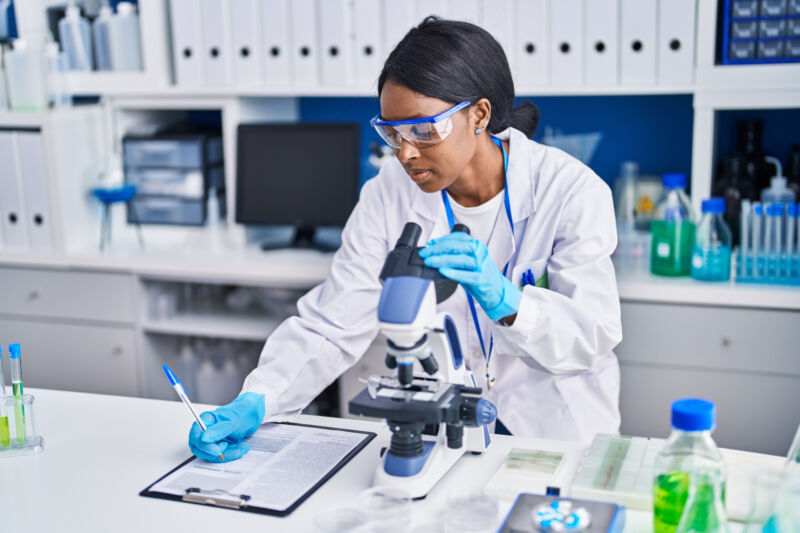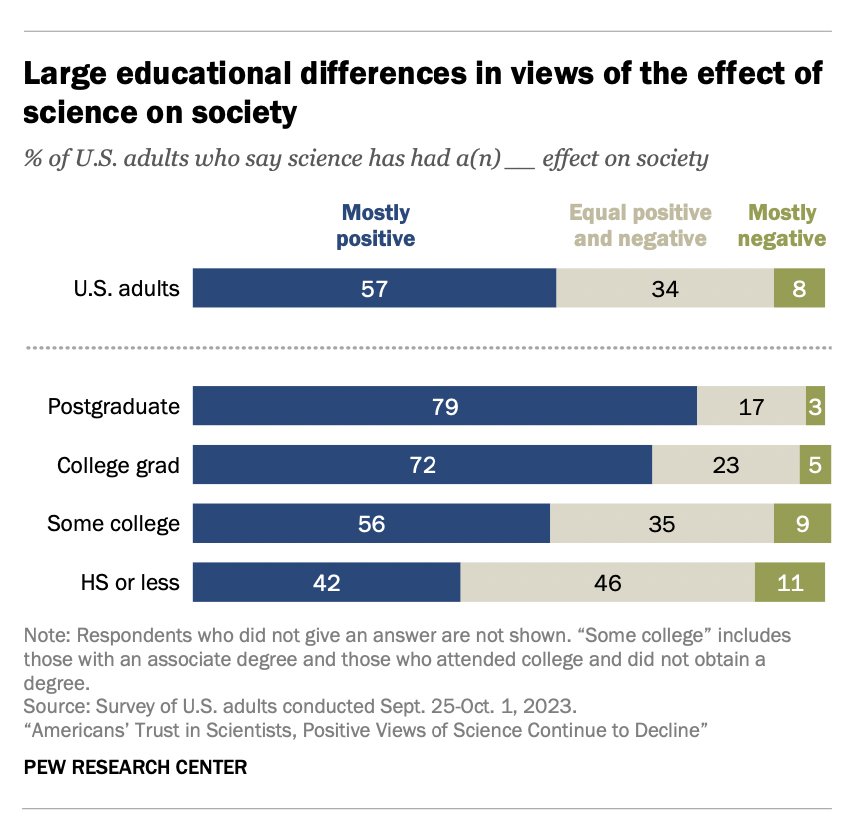
On Tuesday, the Pew Research Center released its latest look at how the US public views scientists and the scientific endeavor. While recent years have shown a decline in the public’s trust in science, these could be viewed as a return to normalcy after a spike in positive feelings during the pandemic’s peak. But this year’s data shows the decline has continued, creating a decline that has now taken us below pre-pandemic levels of trust.
The drop is most pronounced for self-identified Republicans and those without a college education. Despite the decline, however, scientists rank among the most trusted occupations in the US.
A trust deficit
The data used by Pew comes from a survey of nearly 9,000 participants, which provides a margin of error of just ±1.6 percentage points. For some of the individual questions, Pew has been gathering data since at least 2016, allowing it to spot trends in the public’s views. It also has data from all of the pandemic years, including two polls done during 2020, making it easier to spot how that event influenced perceptions of science.
Overall, the trends in Pew’s data are fairly negative. From 2016 to 2021, the portion of US residents who felt science had a mostly positive effect on society hovered within three points of 70 percent. As of 2023, it has dropped to 57 percent. Eight percent now feel that science has had a mostly negative impact, up from a low of just 3 percent in January 2019.
That doesn’t mean science is frowned upon. Nearly 80 percent of the participants felt that government funding for science was a worthwhile societal investment. And scientists were among the most highly respected groups that the Pew asked about, putting up numbers similar to those of medical professionals and the military (both of which have also seen a bit of post-pandemic decline in their favorability). The numbers place scientists comfortably ahead of the police, school principals, religious leaders, and well above business and political leaders. (Even journalists came out ahead of those last two.)

The belief that science has had a positive effect on society correlated strongly with education. Of those with a high school education or less, less than half said that science has had a mostly positive effect on society. That rose to 72 percent among those who completed college and 79 percent for those with a graduate degree.
Education also influenced whether people felt that science drove societal change at an uncomfortably rapid pace. Thirty-six percent of those without college degrees felt that was the case, while 28 percent of those with them did. That figure also rose with age. Only 24 percent of those under 30 years old felt that science was driving a too-rapid pace of change, while 38 percent of those over 50 did.
https://arstechnica.com/?p=1983781

